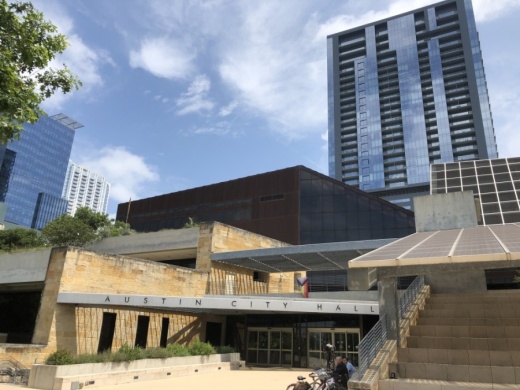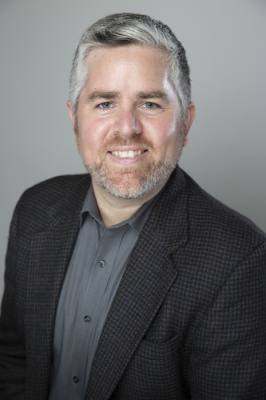Incumbent Jimmy Flannigan and challenger Mackenzie Kelly advanced to a runoff after no candidate in the race received more than 50% of the vote. Their answers are reprinted here. Early voting began Dec. 3, and election day is Dec. 15. You can find voting locations and hours here.
AUSTIN
City Council District 6

James "Jimmy" Flannigan
Occupation: Austin City Council member; former small-business owner
Age: 42
Years lived in Austin: 24
Website: http://www.jimmyflannigan.com/
In August, City Council unanimously supported a significant reduction to the Austin police budget with a commitment to reimagining public safety. As a City Council member, what will you bring to the ongoing debate over how to reimagine public safety?
JF: As Public Safety Chair, I’m leading a transparent process that includes officers and expert insight; research-driven data; training overhaul; and new investments in mental health 911 call diversion. I’m committed to ensuring a pragmatic approach and fiscal prudence by focusing on crime prevention, investments in public health, saving money and remaining one of the safest major cities in the U.S. First responders are our partners in public safety reform to serve and protect all citizens.
The economic impact of the pandemic continues to grow, with many people still out of work. Without waiting for federal and state aid, how would you lead what is expected to be a long and difficult recovery?
JF: In the wake of the SXSW cancellation, and as we saw the economic impact on our community, I authored programs that support small businesses, nonprofits, child care facilities and more. City Council has worked proactively to address the immediate health, safety and economic needs of our most vulnerable by designing programs to help renters and homeowners with their monthly obligations as well.
As the city switches into recovery mode, how do you ensure the safety of those who have continued to go to work and those who will be returning to work?
JF: Essential workers are the backbone of our community. To protect them, I authored a program to provide grants for businesses to cover costs of pandemic compliance and PPE, and we will continue to encourage and enforce masks and social distancing rules to bring virus rates down. Ultimately, we need state and [federal] support to ensure wide-scale testing, vaccine support and continued economic resources.
Austin has endured a growing housing affordability challenge, often attributed to housing stock that has not kept up with demand. How do you approach the issue of housing, and how do you plan to address Austin's need for more housing?
JF: Rapidly rising rents and out-of-control appraisals have made it nearly impossible for essential workers and the next generation to afford to live in our city. We need to streamline a regulatory process that adds unnecessary barriers and costs to building new housing, including transit-oriented developments, expanding affordable housing programs and other regulations to encourage diverse housing options in all parts of the city.
Following the fallout from the River Place Limited District's attempt to charge entrance fees at its trail, what would you propose the city do to ensure that public spaces, even within limited districts, stay open and free to the public and ensure that all Austin residents have equal access to outdoor and recreational resources within city limits?
JF: It’s important that publicly funded amenities, such as the portion of the River Place trail funded by the state of Texas, remain free and accessible to the entire community. It is critical that we continue to invest equitably across the city in publicly funded parks and open space. I have also worked in partnership with the YMCA to identify additional recreation and sports facilities for District 6.

Mackenzie Kelly
Occupation: client care manager at a senior care agency
Age: 34
Years lived in Austin: 34
Website: https://mackenzieforaustin.com/
In August, City Council unanimously supported a significant reduction to the Austin police budget with a commitment to reimagining public safety. As a City Council member, what will you bring to the ongoing debate over how to reimagine public safety?
MK: “Reimagining public safety” should never mean taking funding away when there are problems that need to be addressed. Our council needs to have the ability to identify and address problems before defunding occurs with a solid plan in place that is data-driven. The problems that the police are experiencing are expensive problems. With current staffing, if we do not hire more officers to make up for those leaving, our city will not be safe.
The economic impact of the pandemic continues to grow, with many people still out of work. Without waiting for federal and state aid, how would you lead what is expected to be a long and difficult recovery?
MK: With our current unemployment rate as high as it is, our council should work with state and federal leaders to create programs for those out of work. They also need to coordinate aid to assist businesses that may need it. Currently, council is playing political games with the state, and I would put an end to that. At the end of the day, it’s about helping the people, not whose partisan side you’re on.
As the city switches into recovery mode, how do you ensure the safety of those who have continued to go to work and those who will be returning to work?
MK: COVID has placed unique challenges on our community we have not experienced before. I would push for regulations that allowed businesses to keep at-risk workers working from home in order to help keep them safe. I also believe that personal responsibility is key to reducing the spread of the virus. If those that want to go back to work feel safe enough to do so, the city needs to let them.
Austin has endured a growing housing affordability challenge, often attributed to housing stock that has not kept up with demand. How do you approach the issue of housing, and how do you plan to address Austin's need for more housing?
MK: One of the great American dreams is homeownership, and our leadership in Austin is eroding the affordability and infrastructure access to that dream. The densification efforts of council have led to not only higher taxes and rents but are also rapidly displacing longtime homeowners near the metro area. Gentrification has become overwhelmingly problematic under the current leadership, and I will fight to end the movement toward the failures that are causing our community problems.
Following the fallout from the River Place Limited District's attempt to charge entrance fees at its trail, what would you propose the city do to ensure that public spaces, even within limited districts, stay open and free to the public and ensure that all Austin residents have equal access to outdoor and recreational resources within the city limits?
MK: My understanding is that the River Place Limited District’s decision was made after their plan to maintain the trail rules failed. Residents deserve equal access to outdoor recreational resources within the city limits; however, with defunding of the park police, it would be difficult to enforce rules and heavy trash left behind, such as what happened at the River Place Trail. Our residents all deserve clean and safe trails.







